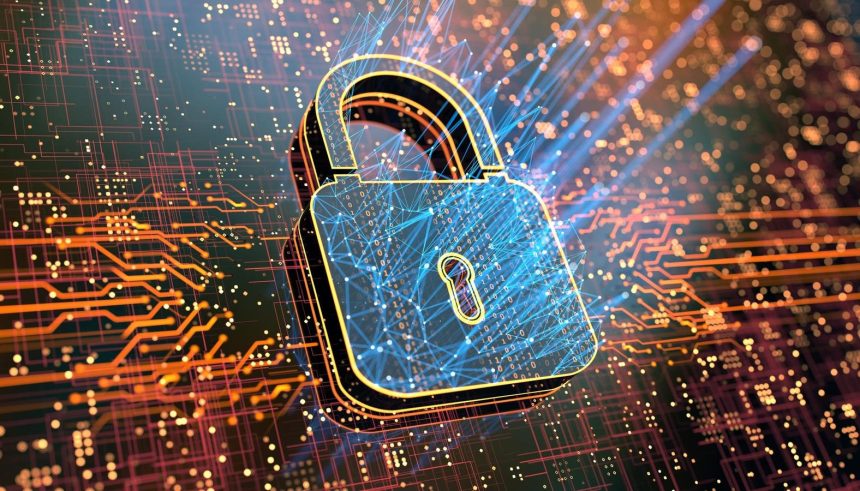Alexander Ray, CEO & cofounder of Albus Protocol, a regulation-compliant DeFi framework for public blockchains.
In the digital age, the banking and financial industry has witnessed an unprecedented transformation, leveraging technology to streamline operations and enhance customer experience. However, this transition comes with its own set of challenges, one of which is the alarming rise in data leaks and breaches. Based on my years of experience in the design and development of forecast models for regulatory risk and financial figures, I will share some of the insights I’ve gained on how to overcome those threats.
Big Data Leak Incidents
To better understand the context of data leaks in the financial sector, let’s first go through some of the biggest in history and their impact on users.
• Equifax: The Equifax attack in 2017 is one of the most notorious data breaches in history. Equifax, a credit reporting agency, fell victim to a cyberattack that exposed sensitive personal and financial information of nearly 143 million individuals.
• Panama Papers: Another case, while not a traditional data breach, is the Panama Papers data leak in 2016. This leak exposed confidential financial documents, implicating numerous high-profile individuals and entities in offshore tax evasion and money laundering.
• JPMorgan Chase: This attack shows that even the most reputable financial institutions can be attacked. In 2017, a cyberattack on JPMorgan Chase compromised data belonging to 76 million households and 7 million small businesses.
The Dangers Of Financial Data Leaks
Data leaks can bring with them a variety of risks and challenges, including:
• Identity Theft and Fraud
When personal and financial data falls into the hands of cybercriminals due to a data breach, the consequences can be terrible. Cybercriminals can exploit stolen information, such as Social Security numbers, credit card details and account credentials, to perpetrate a range of fraudulent activities. They can open fake bank accounts, apply for loans and credit cards in the victim’s name, and make unauthorized transactions.
• Market Manipulation
Leaking of sensitive financial information, such as insider trading data, can open the door to market manipulation. If cybercriminals gain access to nonpublic information about companies’ financial performance, mergers or other significant events, they can exploit this information to make illicit gains. By buying or selling stocks based on this insider information, they can artificially influence stock prices in their favor.
• Global Economic Impact
The financial world operates as an intricate web of interconnected institutions, transactions and investments. A data breach at one financial institution can have far-reaching consequences that ripple through the global economy. For instance, if a major bank’s sensitive information is exposed, it could undermine confidence in the broader banking sector, leading to reduced lending and investment activities. A significant breach might also shake investor confidence and lead to a downturn in stock markets. The interconnectedness of global finance means that disruptions in one part of the world can quickly spread, affecting trade, commerce and investment on a global scale.
Possible Solutions And Preventative Measures
Fortunately, there are a number of ways you can reduce the risk of data links for your organization. Here are three effective methods.
1. Encryption
Encryption plays a pivotal role in ensuring data confidentiality. This involves the use of mathematical algorithms and encryption keys to transform sensitive information into an unintelligible code. This encrypted data can only be decrypted and understood by individuals possessing the correct decryption keys.
There are two primary forms of encryption: data-at-rest and data-in-transit. Data-at-rest encryption safeguards information when it’s stored on devices or servers, while data-in-transit encryption protects data as it moves across networks. I highly recommend employing both forms. To implement these types of encryption effectively, choose the appropriate encryption algorithms for your company, securely manage your encryption keys, and ensure that the encryption systems you employ are compatible with your existing systems.
2. Zero-Knowledge Proofs (ZKPs)
ZKPs are cryptographic tools that enable proof of information without revealing the data itself. In finance, this means transactions, identities and balances can be verified and/or confirmed without disclosing specific sensitive details. Authentication is strengthened, allowing customers to validate their eligibility for loans or transactions without exposing personal information. Market-sensitive data, such as insider trading details, can be validated while preserving confidentiality.
ZKPs can also enhance security by proving identity without divulging private identifiers. This essentially means that the companies don’t have access to users’ sensitive information and don’t store it anywhere; there’s simply no centralized database with credit card information, Social Security numbers, addresses or other valuable information. Consequently, the probability of a data leak seriously decreases.
ZKPs can be a powerful tool for data privacy, but they can also be challenging to integrate. You may face complexities related to computational overhead, performance and the need for specialized cryptographic expertise. To overcome these challenges, consider gradually implementing ZKPs in noncritical systems to gain confidence and team experience. You can also collaborate with experts in this field for guidance. (Full disclosure: My company offers these services, as do others.)
3. Access Control
Access control revolves around regulating who can access specific data or systems within an organization. Modern technology allows for granular control over access permissions. Role-based access control (RBAC) assigns permissions based on job roles, while multifactor authentication (MFA) adds layers of security by requiring multiple forms of authentication.
While access control is highly effective, it demands careful configuration to avoid human error, which could inadvertently lead to data breaches. To help you mitigate this risk, here are some best practices to consider.
• Training and Education: Regularly educate employees about access control policies and the importance of data security.
• Automation: Implement automated access control solutions wherever possible to reduce manual configuration errors.
• Least Privilege Principle: Grant employees only the minimum access necessary for their roles, following the principle of least privilege.
• Regular Auditing and Monitoring: Continuously monitor and audit access control settings to identify and address unauthorized access or anomalies.
Conclusion
In summary, personal data has become an increasingly alluring target for hackers, emphasizing the importance of safeguarding its privacy. Luckily, data privacy technologies are evolving swiftly, addressing many of the hardest challenges posed by the modern world. I believe that the advancement of encryption and zero-knowledge proof technologies, coupled with organizations’ efforts to minimize human errors, will help ensure the continued protection of sensitive data privacy.
Forbes Business Council is the foremost growth and networking organization for business owners and leaders. Do I qualify?
Read the full article here









